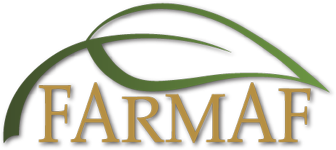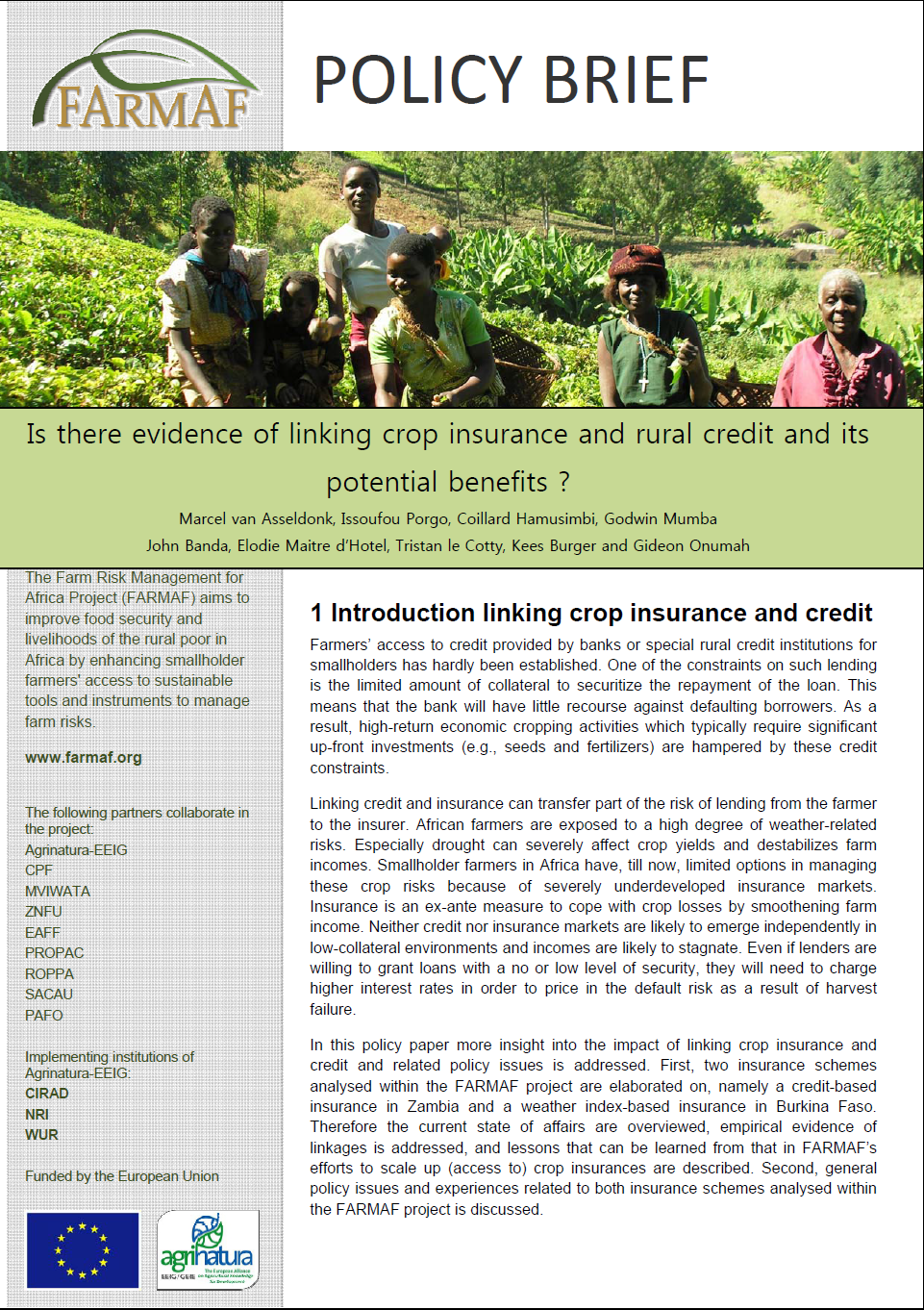 In this policy paper more insight into the impact of linking crop insurance and credit and related policy issues is addressed. First, two insurance schemes analysed within the FARMAF project are elaborated on, namely a credit-based insurance in Zambia and a weather index-based insurance in Burkina Faso. Therefore the current state of affairs are overviewed, empirical evidence of linkages is addressed, and lessons that can be learned from that in FARMAF’s efforts to scale up (access to) crop insurances are described. Second, general policy issues and experiences related to both insurance schemes analysed within the FARMAF project is discussed.
In this policy paper more insight into the impact of linking crop insurance and credit and related policy issues is addressed. First, two insurance schemes analysed within the FARMAF project are elaborated on, namely a credit-based insurance in Zambia and a weather index-based insurance in Burkina Faso. Therefore the current state of affairs are overviewed, empirical evidence of linkages is addressed, and lessons that can be learned from that in FARMAF’s efforts to scale up (access to) crop insurances are described. Second, general policy issues and experiences related to both insurance schemes analysed within the FARMAF project is discussed.
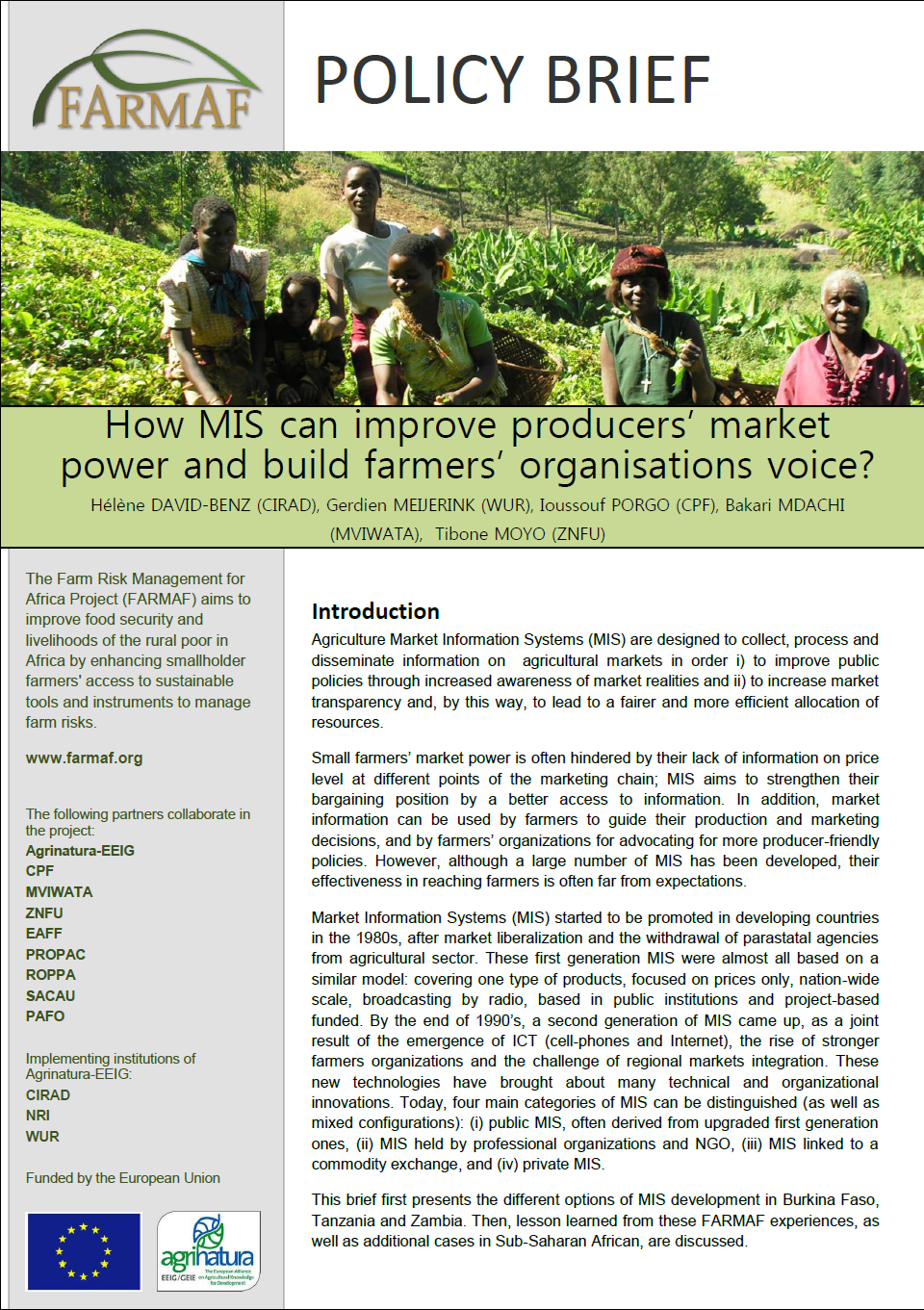 Agriculture Market Information Systems (MIS) are designed to collect, process and disseminate information on agricultural markets in order i) to improve public policies through increased awareness of market realities and ii) to increase market transparency and, by this way, to lead to a fairer and more efficient allocation of resources.
Agriculture Market Information Systems (MIS) are designed to collect, process and disseminate information on agricultural markets in order i) to improve public policies through increased awareness of market realities and ii) to increase market transparency and, by this way, to lead to a fairer and more efficient allocation of resources.
Small farmers’ market power is often hindered by their lack of information on price level at different points of the marketing chain; MIS aims to strengthen their bargaining position by a better access to information. In addition, market information can be used by farmers to guide their production and marketing decisions, and by farmers’ organizations for advocating for more producer-friendly policies. However, although a large number of MIS has been developed, their effectiveness in reaching farmers is often far from expectations.
This brief first presents the different options of MIS development in Burkina Faso, Tanzania and Zambia. Then, lesson learned from these FARMAF experiences, as well as additional cases in Sub-Saharan African, are discussed.
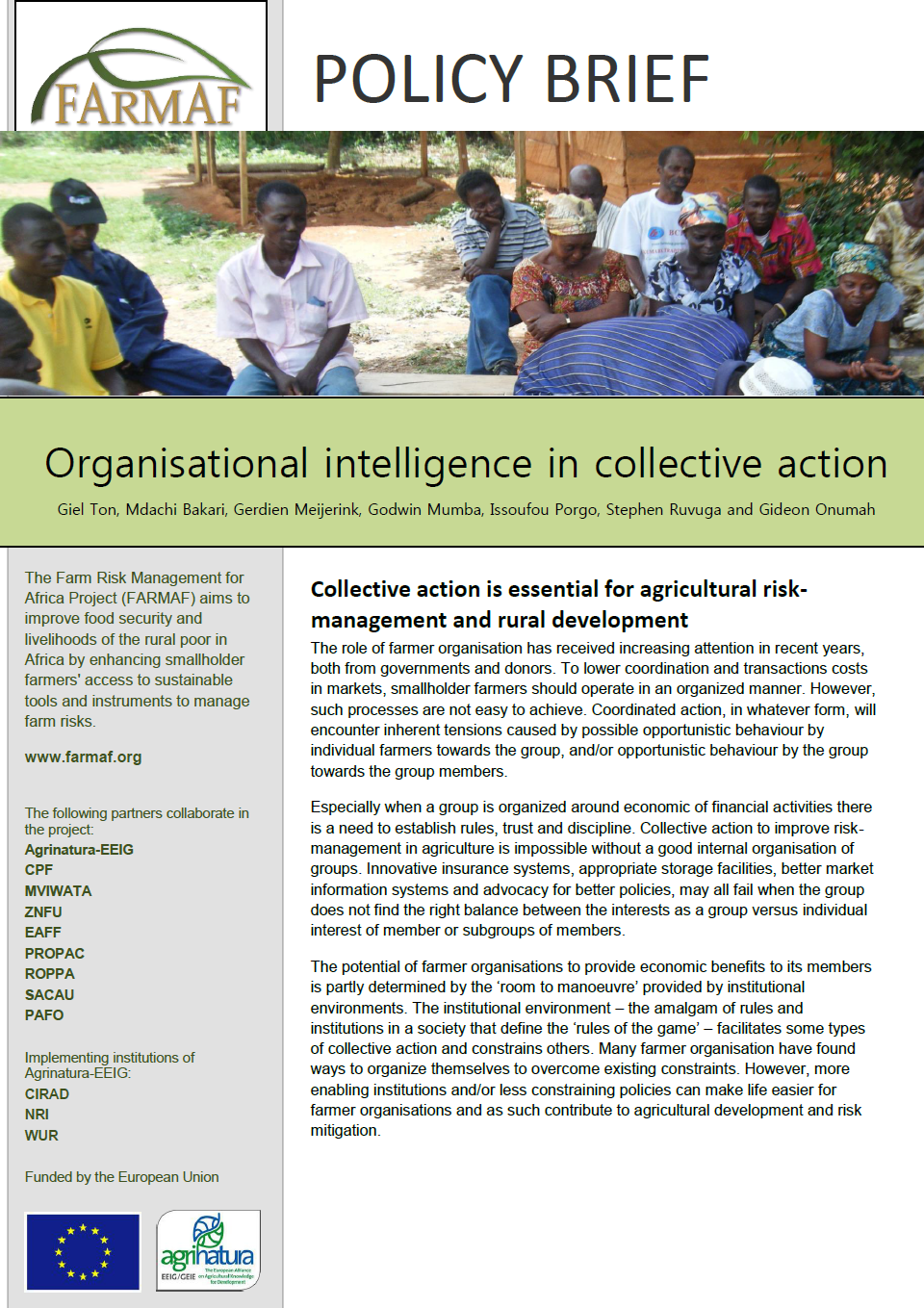 Collective action is essential for agricultural risk management and rural development. The role of farmer organisation has received increasing attention in recent years, both from governments and donors. To lower coordination and transactions costs in markets, smallholder farmers should operate in an organized manner. However, such processes are not easy to achieve.
Collective action is essential for agricultural risk management and rural development. The role of farmer organisation has received increasing attention in recent years, both from governments and donors. To lower coordination and transactions costs in markets, smallholder farmers should operate in an organized manner. However, such processes are not easy to achieve.
Coordinated action, in whatever form, will encounter inherent tensions caused by possible opportunistic behaviour by individual farmers towards the group, and/or opportunistic behaviour by the group towards the group members.
Especially when a group is organized around economic of financial activities there is a need to establish rules, trust and discipline. Collective action to improve risk management in agriculture is impossible without a good internal organisation of groups. Innovative insurance systems, appropriate storage facilities, better market information systems and advocacy for better policies, may all fail when the group does not find the right balance between the interests as a group versus individual interest of member or subgroups of members.
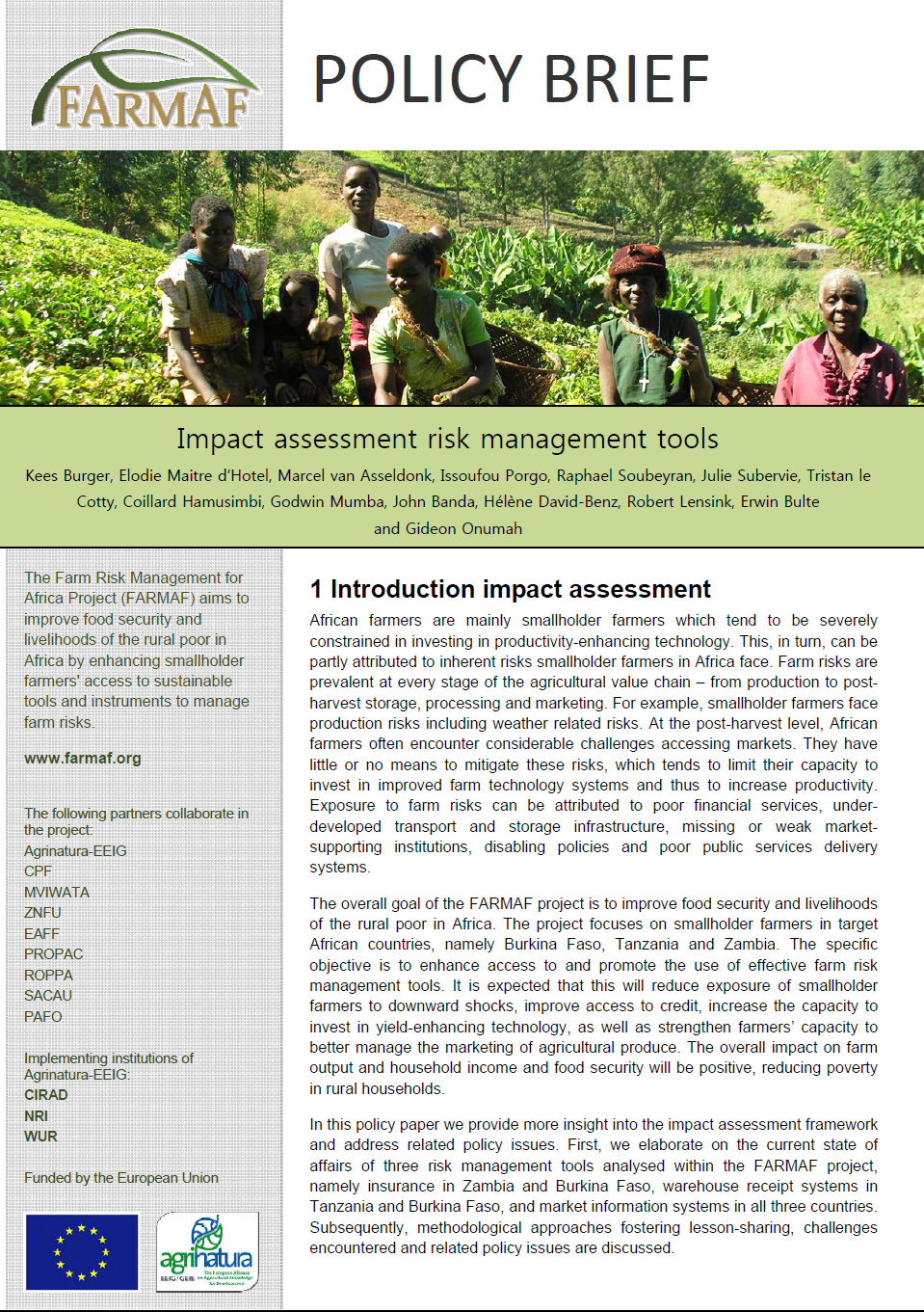 The overall goal of the FARMAF project is to improve food security and livelihoods of the rural poor in Africa. The project focuses on smallholder farmers in target African countries, namely Burkina Faso, Tanzania and Zambia. The specific objective is to enhance access to and promote the use of effective farm risk management tools. It is expected that this will reduce exposure of smallholder farmers to downward shocks, improve access to credit, and increase the capacity to invest in yield-enhancing technology, as well as strengthen farmers’ capacity to better manage the marketing of agricultural produce. The overall impact on farm output and household income and food security will be positive, reducing poverty in rural households.
The overall goal of the FARMAF project is to improve food security and livelihoods of the rural poor in Africa. The project focuses on smallholder farmers in target African countries, namely Burkina Faso, Tanzania and Zambia. The specific objective is to enhance access to and promote the use of effective farm risk management tools. It is expected that this will reduce exposure of smallholder farmers to downward shocks, improve access to credit, and increase the capacity to invest in yield-enhancing technology, as well as strengthen farmers’ capacity to better manage the marketing of agricultural produce. The overall impact on farm output and household income and food security will be positive, reducing poverty in rural households.
In this policy paper we provide more insight into the impact assessment framework and address related policy issues. First, we elaborate on the current state of affairs of three risk management tools analysed within the FARMAF project, namely insurance in Zambia and Burkina Faso, warehouse receipt systems in Tanzania and Burkina Faso, and market information systems in all three countries. Subsequently, methodological approaches fostering lesson-sharing, challenges encountered and related policy issues are discussed.
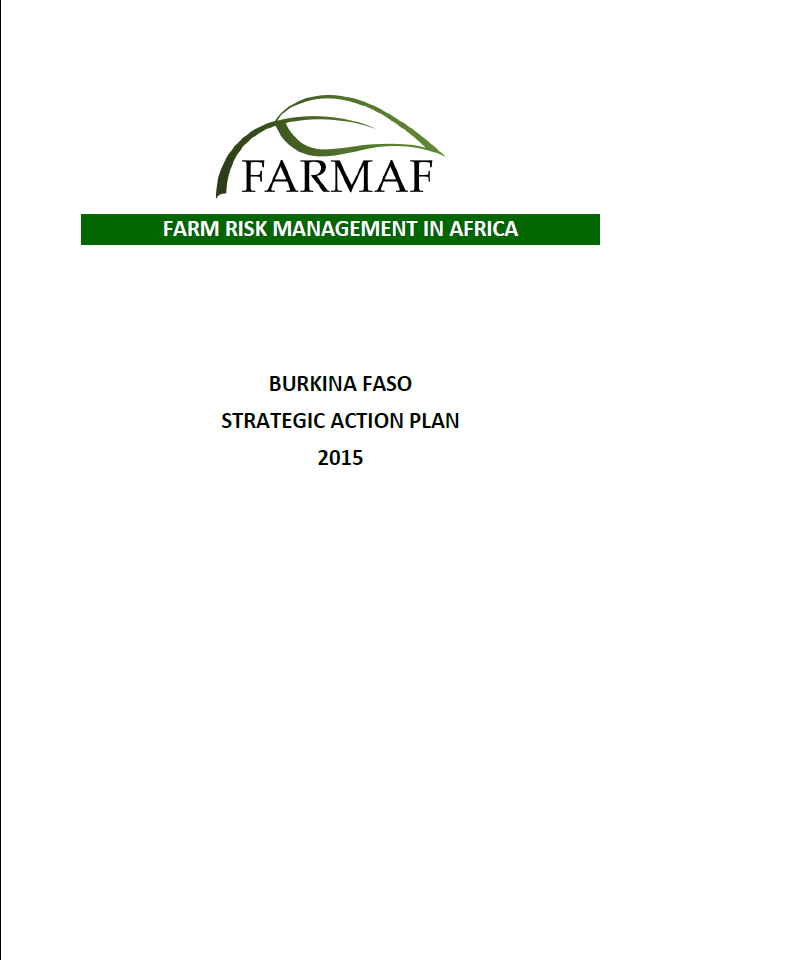 This action plan is the operational implementation of the FARMAF project for Burkina Faso for 2015. The structure of the present document reflects the three main tools on which actions are planned in Burkina Faso for 2015. For each of these tools, the planned measures are presented and the expected as well as partnerships and some calendar items are specified products.
This action plan is the operational implementation of the FARMAF project for Burkina Faso for 2015. The structure of the present document reflects the three main tools on which actions are planned in Burkina Faso for 2015. For each of these tools, the planned measures are presented and the expected as well as partnerships and some calendar items are specified products.


